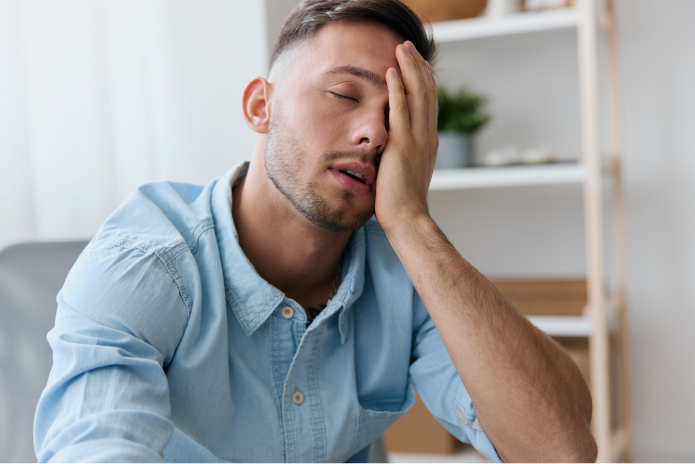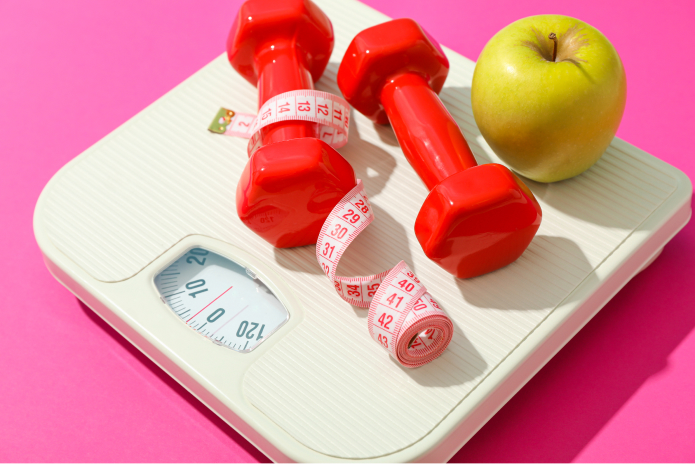If you want to take care of yourself, and you should, then you’ve probably heard that eating a diet high in fatty foods is bad and drinking alcohol in excess can wreak havoc on your body. Not to mention the myriad of other substances and lifestyle choices that have detrimental effects on your health.
But one factor that doesn’t get talked about often enough is sleep. In today’s society, we move fast. Most people have a lot on their plates. Between work responsibilities, family engagements, and entertainment activities, sleep often gets pushed to the back burner.
In fact, many of us take pride in the ability to go at this pace and wear our 5 hours of sleep like a badge of honor on our sleeves. But is this something we should be proud of? Afterall, nobody brags about being a 2-pack-a-day smoker. In this article we’ll examine the role of sleep on health and explain why it might be time for you to reconsider your sleep habits.
What Happens When You Sleep
Sleep is essential for your body to function properly. When you sleep, your body performs countless processes that aid in recovery, hormone regulation, and disease prevention. These processes heal sore joints and muscles, help you maintain a healthy weight, and keep your immune system in top condition for fighting off bacteria and viruses.
We won’t go into too much detail on how these processes work here, but just know that if you stop sleeping enough, these processes don’t have the time they need to finish their tasks. This can lead to a cascading effect of disruption inside your body, affecting everything from your skin complexion to your mental health. Let’s look at some of the issues that arise from sleep deprivation.
Poor Cognitive Function
We’ll start with the most obvious one first: brain fog. We’ve all been there. You just can’t focus on your everyday tasks and you struggle to hold a conversation because your brain just isn’t moving fast enough. While this is a symptom that, in the short term, is a minor inconvenience, if left to go on chronically it can start to have a real impact on your life.

Performance at work can begin to suffer and your relationships with others can get strained. Worse, if your brain is sleep deprived it can lead to a decrease in motor skills and physical reaction time, which means that if you’re driving while sleep deprived you are at a significantly higher risk of having an accident.
Mental Heath Decline
Sleep is directly linked to dopamine production. Dopamine is the hormone responsible for making you feel good. In fact, this is exactly how anti-depressants work. They elevate dopamine levels to return them to a normal state in a person who suffers from clinical depression.
So it goes without saying that sleep deprivation is directly linked to depression by way of inhibiting dopamine activity in the brain. Pulling an all-nighter every now and then probably won’t do much damage, but chronic lack of sleep will almost certainly lower your dopamine production and open the door for a decline in mental health.
Increased Susceptibility to Illness
Because your immune system requires sleep to be able to fight off illness, a lack of sleep puts your body at greater risk of falling ill to that nasty virus going around. It’s no surprise that your body feels tired when you’re sick. This is because your body is telling you it needs extra sleep to allow the immune system to fight off the illness.
It’s one thing to get the extra rest after you’ve gotten sick, but a better practice would be to keep your immune system in a state where it’s able to fight the bug before it take over. The only way to do that is to get the sleep you need before it’s too late.
Weight Gain

Another hormone affected by the amount of sleep you get is insulin. Insulin is the king of weight regulation and is also the culprit in diabetes. Think of insulin as the shuttle that delivers nutrients to your body’s cells.
When you don’t sleep enough, your body’s cells don’t respond to insulin the way they should, leading to a condition called insulin resistance. In an insulin-resistant state, sugar builds in the blood and the cells don’t receive the nutrients they need, essentially starving your body. This is the precursor to type II diabetes.
When you’re insulin resistant, your body recognizes that the cells are not getting the nutrients and it pumps out more and more insulin to drive nutrients to the cells. As insulin resistance grows, eventually the body cannot keep up with the insulin needed and the sugar in the blood gets stored as fat.
Additionally, whenever insulin is present in the blood, it turns off the signal for the body to use stored fat as fuel. So no matter how much cardio you do, if your body is overproducing insulin constantly throughout the day, you’ll never be in fat burning mode.
Increased Risk of Heart Attack

If the above issues were not enough to persuade you to think twice about changing your poor sleep habits, this one should be. A recent study found that lack of sleep increased the risk of heart attacks by roughly 20%. That’s a huge number and it’s not surprising, given the multitude of functions inside your body that rely on proper sleep.
The process by which sleep deprivation increases the risk of a heart attack is complicated and like most things in the body, the risk is a result of a cascading effect. We’ve already discussed the role of sleep in weight regulation, which in itself is a heart attack risk factor.
But sleep also plays a vital role in blood pressure regulation and inflammation, two more heart attack risk factors. Put it all together and sleep deprivation is the perfect antagonist to start the chain events related to heart attacks.
Conclusion
Simply put, make sure you get enough sleep. The average adult needs roughly 7-8 hours of sleep per night. But don’t base your sleep habits on the average population. Cater your sleep to your lifestyle. If you are a very active person, you’ll need more sleep to recover. If you’re a medical provider that is exposed to illness all day at work, you probably need more sleep to keep your immune system at its peak than the average person.
The best rule of thumb is to talk to your doctor and listen to your body. If you feel off, or tired, it’s trying to tell you something. And sleep may be exactly what the body ordered to get you back on the right track.




